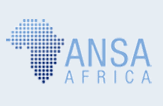Gender Budgeting Report 2010-2011
25 June 2010
Government of the People's Republic of Bangladesh: Ministry of Finance
We strongly believe that people are at the centre of a comprehensive and sustainable social and economic development framework. At the end of the day all activities of the government must create positive impact for people. Since the people comprise heterogeneous groups which face different realities, obstacles, and opportunities, some of these groups show a greater lack of economic and social advancement. Poverty reduction strategies will need to take such differences into consideration to remove obstacles, address needs and expand opportunities for these groups. In this connection, it is essential to identify the excluded, disempowered and vulnerable members of the society. Some of them are women, children, indigenous people, persons with disabilities and other disadvantaged groups. Comprehensive, value-based, and sustainable social and economic development can be achieved only by eliminating discrimination at all levels. Therefore, we are cognizant of the fact that gender based disparities and discrimination have to be eliminated and efforts towards that end must form an integral part of development initiatives.
This government is fully committed to deal with addressing the gender based inequalities and discriminations. It is our strong commitment to build and use women resource of the country, ensure creation of space for them to effectively contribute to the development of Bangladesh and also enjoy the fruits of development. The Constitution of Bangladesh ensures equal rights to all citizens and prohibits discrimination and inequality on the basis of sex and strives to promote social and economic equality. Specifically, with respect to women, Article 28 states "Women shall have equal rights with men in all spheres of state and public life."
In line with the spirit of the constitution we are committed to effectively introduce, implement and strengthen a gender budgeting process. This gender budgeting is expected to create more pro-people budgeting, and to create scope for greater transparency and accountability. This is going to be a long process and will require a change in the mindset of the people associated with making policies, plans, programmes and projects.
As a part of this process to introduce a gender sensitive budget we undertook an initiative last year to disaggregate the budgets and beneficiary data for some ministries on a gender basis. This year we have expanded the exercise and taken up ten ministries to carry out the disaggregation. This new initiative is a starting point for deeper understanding of the challenges to be faced in introducing gender budgeting. This will allow us to identify where and what actions need to be taken. I would also like to take this opportunity to thank all the involved personnel for their unrelenting efforts in formulating this report.
We intend to continue to undertake this exercise for other ministries in the future.
| Table of Contents |
| Chapter 1: Introduction |
1 |
| Chapter 2: Ministry of Agriculture |
6 |
| Chapter 3: Disaster Management and Relief Division |
14 |
| Chapter 4: Ministry of Education |
20 |
| Chapter 5: Ministry of Environment and Forest |
31 |
| Chapter 6: Ministry of Fisheries and Animal Resources |
39 |
| Chapter 7: Ministry of Health and Family Welfare |
47 |
| Chapter 8: Ministry of Land |
57 |
| Chapter 9: Rural Development and Co-operatives Division |
62 |
| Chapter 10: Ministry of Social Welfare |
70 |
| Chapter 11: Ministry of Water Resources |
77 |
|

